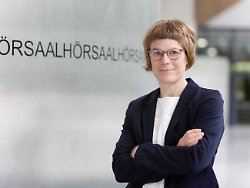Friday, January 1st, 2021
Climate protection deliberately slowed down
Economics criticizes industry harshly
For too long, German industry has tried to stop the structural change towards a more climate-friendly economy instead of shaping and using it. This criticism does not come from eco-activists, but from one of the country's most renowned economic researchers.
The Nuremberg economics professor and "economics" type Veronika Grimm has accused German industry of deliberately slowing down the structural change towards more climate protection for too long. "One must not hide the fact that the industry has tried in part to stop this structural change. That can now take revenge if the crucial components for a more climate-friendly economy do not come from Europe," said Grimm.
Politicians also have their share in this problem. "The structures favored this. Politicians, for example, have willingly supported the production of internal combustion engines again and again and thereby kept the pressure to initiate changes low," said Grimm. "They thought too short-term and pursued conservation. That turned out to be not wise ex post."
In transport, it has not yet been possible to reduce CO2 emissions since 1990. The tightening of the climate targets in the EU and Germany is now creating considerable pressure to act, even with a view to the year 2030. "We are facing major challenges in traffic in particular, ten years is actually nothing in relation to the vehicle fleet," emphasized Grimm. But one must always keep in mind that political decisions have to experience social acceptance. Last but not least, the climate movement of recent years has made a paradigm shift possible.
"Digitization is getting more difficult"
Climate protection offers great industrial policy opportunities and holds considerable growth potential, said Grimm. "That means that we really have to move consistently towards future technologies". It is particularly gratifying that the federal government has made investments for climate protection possible in its Corona aid packages even during the crisis. "We must now use the money that is on the table to accelerate the change to climate-neutral technologies and, in particular, to mobilize private capital," said the economist.
Since April Grimm has been a member of the Economic Advisory Council, the most important economic policy advisory body of the federal government. According to Grimm, the interplay of the great technological competence in Germany and the good opportunities for generating renewable energies in southern EU countries opens up prospects for Europe. "We should create cohesion in Europe through joint investments in the future through the construction fund."
"It's more difficult with digitization," added Grimm. There is a lot of catching up to do here, for example in the health sector, in education or in the public sector. "The Corona crisis made us realize that a lot more could already be digitized here."
.
